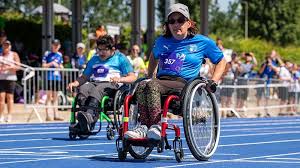
A new global report by Special Olympics has revealed that people with intellectual and developmental disabilities (IDD) continue to face some of the most severe health inequities worldwide. The findings, drawn from the Rosemary Collaboratory initiative, shed light on systemic barriers that prevent this population from accessing quality healthcare, resulting in poorer health outcomes.
According to the report, people with IDD experience disproportionately high rates of obesity, diabetes, heart and respiratory diseases, and mental health conditions. On average, they die 16 to 20 years earlier than the general population, often from conditions that could be prevented or better managed with timely access to effective healthcare.
“The health inequities people with IDD face are not inevitable, they are readily remediable,” said Dr. Dimitri Christakis, Chief Health Officer of Special Olympics. “People with IDD have simply not been made a priority.
This report highlights structural and systemic barriers to equitable health services and outlines a practical path forward. For more than 50 years, the Special Olympics movement has been committed to inclusion for people with IDD, and we invite others to join us in this pursuit.”
In the first half of 2024, Special Olympics, through Rosemary Collaboratory, engaged teams in 11 sites across nine countries—including Chinese Taipei, India, Ireland, Morocco, Nigeria, Pakistan, Paraguay, South Africa, and in the United States, Pennsylvania, Washington, and Wisconsin—to evaluate how health systems include people with IDD.
Working in partnership with the Missing Billion Initiative (MBI), Special Olympics developed an IDD-specific assessment module based on MBI’s existing disability inclusion framework. The tool, which includes nearly 60 indicators, measures access gaps, highlights barriers, and tracks progress for people with IDD.
The report points to urgent challenges, including limited accessibility of services, biases among healthcare providers, inadequate training for health professionals, social stigma, discrimination, insufficient data collection, and the lack of targeted policies.
Rosemary Collaboratory seeks to translate these findings into practical improvements by addressing the barriers identified and prioritized by people with IDD themselves.
The report underscores the urgent need for governments, health systems, and development partners to take action to ensure equitable, inclusive, and high-quality healthcare for people with IDD worldwide.


